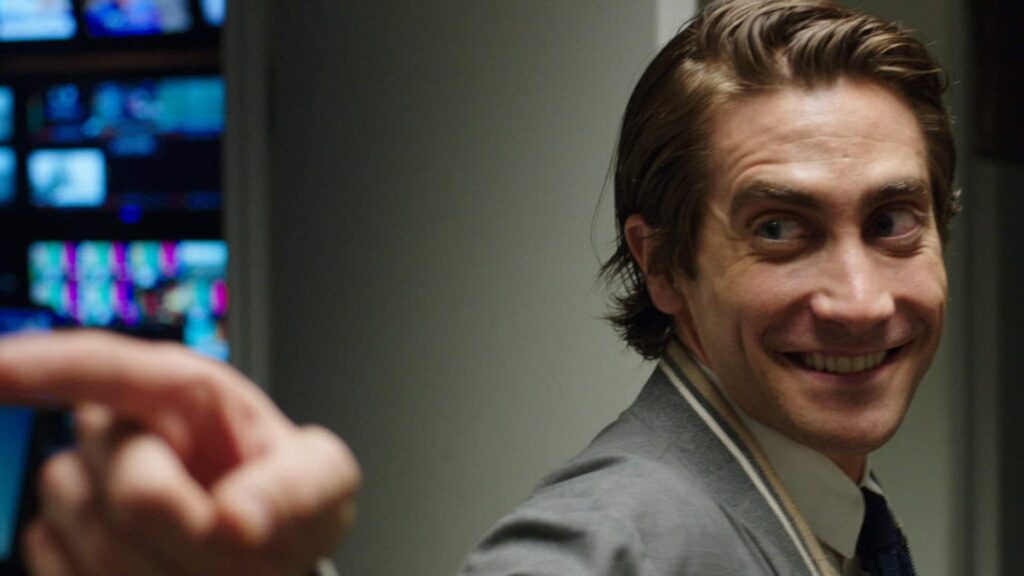Welcome to My Commons Watch. In this section, we will be looking over entertainment in the digital form, be it a Netflix show or viral Youtube video. Of course, once you finish reading up each week’s topic, checking it out for yourself is absolutely mandatory! This week’s edition: Nightcrawler

Nightcrawler is a 2014 crime thriller directed by Dan Gilroy, with an uncomfortably realistic take on modern media culture. And I have to say, Jake Gyllenhaal, who plays Louis Bloom, gives one of his greatest performances on screen.
Louis Bloom is a sociopath. He lives and operates alone, down on his luck financially, and most certainly not making strides on the social scene. But one night, he stumbles upon the world of stringing, also known as night crawling. Night crawlers celebrate when a building burns. They make vacation plans when a family is killed. Because, when these tragedies happen, night crawlers are on the scene with a camera and a light, angling for the best shot to deliver to news stations. The more shocking the footage, the more bills in their pockets. Naturally, this career appeals to our lovely protagonist, who shows talent early on. As morbid as the job can be at times, Lou manages to take it even further.
SPOILERS!
Dan Gilroy’s directorial debut film had audiences, including myself, at the edge of our seats, and I practically fell off during the movie’s final act. Few films have filled me with so much suspense. So, what makes Nightcrawler so entertaining? Why do we enjoy watching a sociopath with no redeeming qualities or relatable human traits? First, we must learn about Lou’s sociopathy.

Lou’s dialogue is something particularly unique to this film. He rarely speaks about his feelings, and when he does, it is with sinister intentions that chill us to the bone. Every other time, however, Lou is citing facts, teaching other characters, and keeping every thing in concise, logical verbal packages. At no point do we feel frustrated or feel the pace of the movie slow down for Lou do navigate complex emotions. He has none. He continually takes the logical next step, whether it’s morally questionable or not, and he wins every time. As audience members, we take joy in watching Lou do what we wish we could. Emotionlessly knowing exactly what to do and taking what we want, when we want it.
Most importantly, we are shown that society rewards emotionless characters like Lou. The news station boss praises Lou for his gruesome recordings, and pays him handsomely for them. Viewership for the news broadcast even increases. It’s a clear commentary on the media culture we are all guilty of participating in, but it also creates a bridge between us and a sociopath like Lou. Maybe we all are sociopaths in some way, but we just don’t admit it to ourselves. And while entertaining our selfish desires are satisfying to watch at first, Lou eventually takes a dark turn that even we can’t follow.
Lou sits by while a family is shot and records the suspects. Lou captures footage of the bleeding family members without ever calling for help. Lou keeps the footage of the suspects to himself, and waits for the criminals to commit another crime. Even this, we can accept as an audience, even empathize. We all can appreciate an artist dedicated to his work. The moment this empathy stops, however, is when Lou delivers this line to his partner in crime: “What if my problem wasn’t that I don’t understand people, but that I don’t like them?”. Lou holds no emotional attachments to his partner, Rick, who stuck by Lou through his entire journey, and undoubtedly helped him succeed. We value our connections with people we’ve spent significant amounts of time with, and even the evilest movie villains have someone they trust. Lou holds none of these sentiments, and when he intentionally lets Rick get shot, we are woken up to his true emptiness.
Nightcrawler puts us face to face with our less acknowledged, dark selves. Even now, 7 years after the film’s release, it’s message hits home.